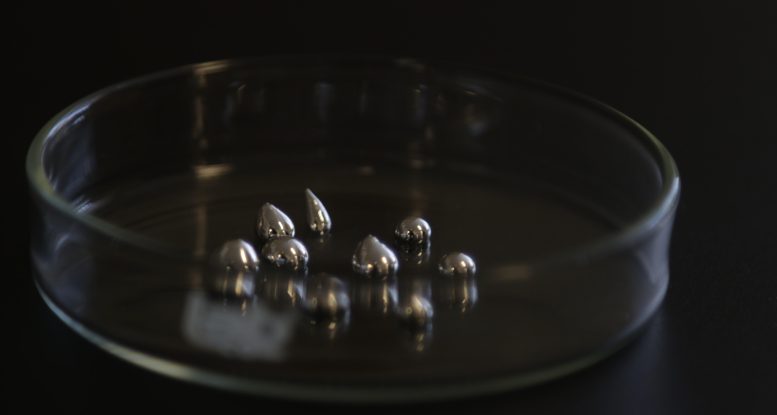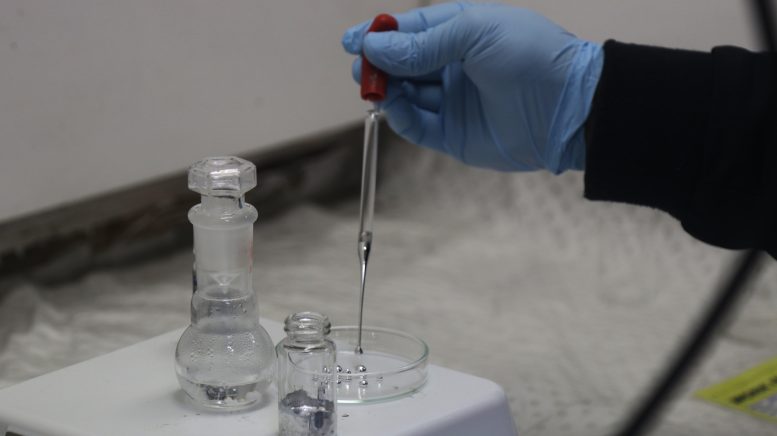
Researchers suggest methods to reduce increasing industrial emissions, enhancing the sustainability of everyday product manufacturing.
Researchers at the University of Sydney have proposed a novel method to reduce industrial emissions. Their approach leverages the “atomic intelligence” of liquid metals to facilitate greener and more sustainable chemical reactions.
Despite global efforts towards renewable energy and electrification, chemical production accounts for approximately 10-15 percent of total greenhouse gas emissions. More than 10 percent of the world’s total energy is used in chemical factories, with these numbers rising.
This is due to the large amounts of energy required to cause chemical reactions used to make different products. Published in Science, researchers have developed a road map that demonstrates how chemical processing can be transformed by changing the nature in which reactions occur.
The Role of Chemical Reactions in Modern Products
Head of School of Chemical Engineering Professor Kourosh Kalantar-Zadeh, who led the research said: “People often forget that chemical reactions are at the heart of all we have and use; almost all modern products are created using some sort of chemical reaction. From high-grade plastics for medical implements through to ammonia for agriculture, the current process in which they are created requires significant amounts of energy leading to growing greenhouse gas emissions.
Numerous chemical reactions, including those for green hydrogen production, the synthesis of chemicals with specific structures such as polymers used to make household products, and the decomposition of various materials like microplastics and persistent substances including per- and polyfluoroalkyl substances (PFAS) are all potential targets for improvement using liquid metals.

“Using liquid metals for chemical reactions is still a very new concept; most chemical reactions still rely on decades-old processes. Tapping into the ‘atomic intelligence’ of metals in liquid form to drive reactions remains largely unexplored but holds huge potential for transforming the future of chemical industries,” said Professor Kalantar-Zadeh.
His team last year tested a technique using liquid metals they hope will replace energy-intensive chemical engineering processes that use solid catalysts – solid metals or compounds that cause chemical reactions – to create a range of products including plastics, fertilizers, fuels, and feedstock. His team recently demonstrated the possibility of using liquid metal alloys derived from numerous metals for hydrogen production.
The team’s approach means chemical reactions can be incited at lower temperatures, unlike current techniques which require metals to be heated to up to several thousand degrees centigrade. Liquid metals instead dissolve catalytic metals – metals that cause reactions – like tin, copper, silver, and nickel at low temperatures, creating alloys that promote chemical reactions at low energy.
Reference: “The atomic intelligence of liquid metals” by Kourosh Kalantar-Zadeh, Torben Daeneke and Junma Tang, 25 July 2024, Science.
DOI: 10.1126/science.adn5871
The study was funded by the Australian Research Council Laureate Fellowship.
1 Comment
“Their approach leverages the ‘atomic intelligence’ of liquid metals to facilitate greener and more sustainable chemical reactions.”
Gag me with a spoon! I think that ‘woke’ terminology is getting out of hand. The kind of people who never read past the sports news, fashion, and comics may need an oversimplification to be able to ‘understand’ science and technology. However, those people are probably never going to read a science news blog like this one.
As is so often the case with these kinds of announcements of a claimed technology ‘breakthrough,’ the big picture is being ignored. Gallium is not abundant and requires a lot of energy to extract and purify, as with most metals. That calls into question whether its so-called sustainability is greater than other catalytic metals it might compete with. They either didn’t look at the energy economics of producing gallium, or just neglected to mention what they discovered. As I have remarked before, just because something is technologically possible, doesn’t meant that it is economically feasible. That is one of many reasons why so many ‘discoveries’ never become a commercial success.